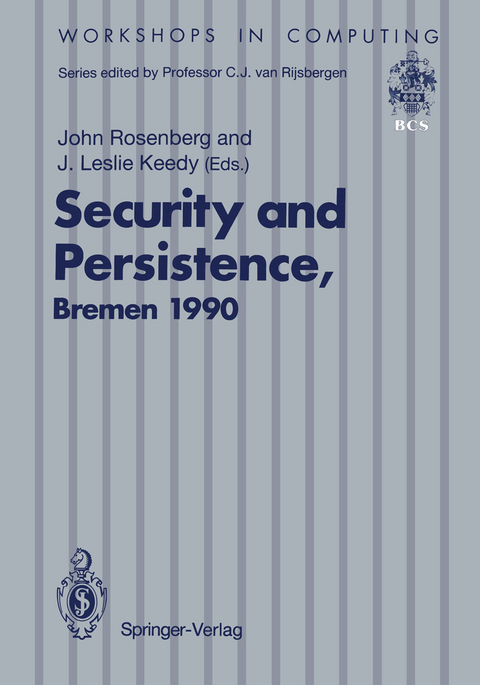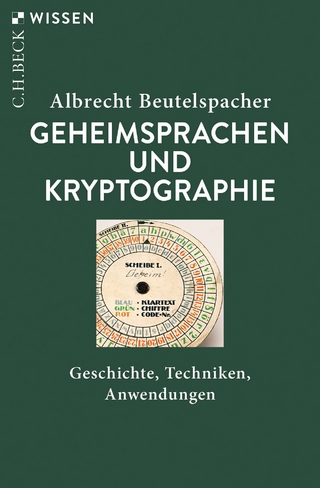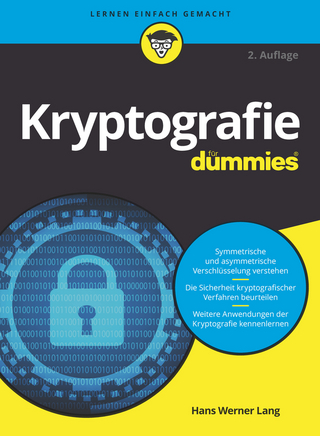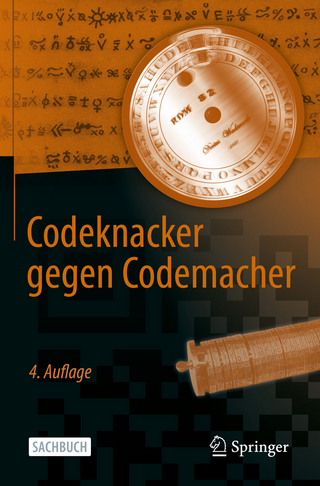
Security and Persistence
Springer Berlin (Verlag)
978-3-540-19646-4 (ISBN)
I: Invited Presentations.- Capabilities and Security.- Persistent Languages and Architectures.- II: Principles and Models.- Dimensions of Addressing Schemes.- Protection in Persistent Object Systems.- A Model for Protection in Persistent Object-Oriented Systems.- III: Security.- Charging in a Secure Environment.- Algorithms for Data Encryption.- Capabilities and Encryption: The Ultimate Defense Against Security Attacks?.- IV: Architectures.- Implementing 128 Bit Persistent Addresses on 80x86 Processors.- Active Memory for Managing Persistent Objects.- A Layered Persistent Architecture for Napier88.- An Object-Oriented Approach to Support System Reliability and Security.- A Secure RISC-Based Architecture Supporting Data Persistence.- An Architecture Supporting Security and Persistent Object Storage.- V: Fault Tolerant Systems.- PUMA - A Capability-Based Architecture to Support Security and Fault Tolerance.- Stability in a Persistent Store Based on a Large Virtual Memory.- Stability in a Network of MONADS-PC Computers.- VI: Operating Systems.- VERITOS Distributed Operating System Project - An Overview.- Homogeneous Memory Management in the Context of the VERITOS Project.- Considerations of Persistence and Security in Choices, an Object-Oriented Operating System.- Combining Verified and Adaptive System Components Towards More Secure Computer Architectures.- Mechanisms for Security and Persistence in BirliX.- VII: Persistence and Databases.- Transactions in a Segmented Single Level Store Architecture.- The RelaX Transactional Object Management System.- Towards New Architectures for Distributed Autonomous Database Applications.- Persistence for Arbitrary C++ Data Structures.- Author Index.
| Erscheint lt. Verlag | 19.11.1990 |
|---|---|
| Reihe/Serie | Workshops in Computing |
| Zusatzinfo | XVIII, 394 p. 16 illus. |
| Verlagsort | London |
| Sprache | englisch |
| Maße | 170 x 242 mm |
| Gewicht | 680 g |
| Themenwelt | Mathematik / Informatik ► Informatik ► Software Entwicklung |
| Informatik ► Theorie / Studium ► Kryptologie | |
| Schlagworte | algorithms • Computer • Computer Architecture • C++ programming language • Databases • data structures • language • operating system • Persistence • Processor • Reliability • security • Software |
| ISBN-10 | 3-540-19646-3 / 3540196463 |
| ISBN-13 | 978-3-540-19646-4 / 9783540196464 |
| Zustand | Neuware |
| Haben Sie eine Frage zum Produkt? |
aus dem Bereich


